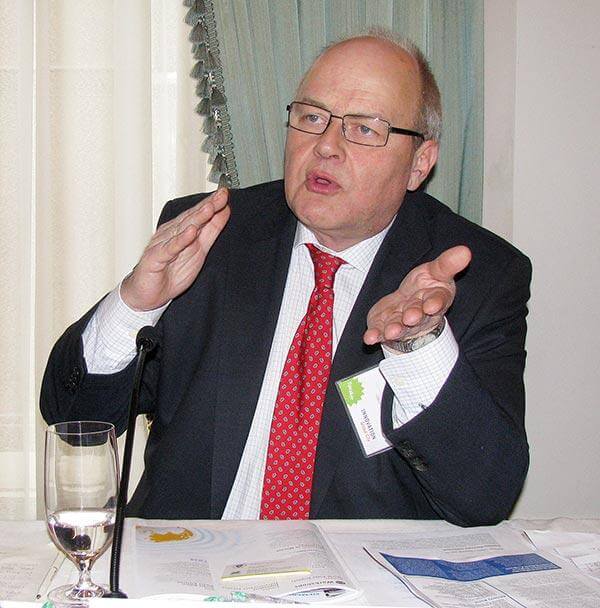By Philip Newman
John F. Kennedy International, Newark Liberty and LaGuardia airports must be restored to world-class facilities or face the loss of untold billions of dollars in lost jobs and revenue in coming decades, conferees at a Regional Plan Association conference were told last week.
Jeffrey Zupan, senior fellow for transportation of the RPA, said a recent study reported that the three airports — all listed at the bottom nationally for delays and congestion — are within reach of a combined capacity of about 110 million passengers per year.
“We are getting back to those numbers as we pull out of the recession,” Zupan said. “There were 104 million passengers in 2010 and the number is expected to reach 110 million within the next two years.”
But he warned that “if we are not able to accommodate more passengers in the future, the economic revival we all wish for will begin to choke.”
The report said for every million airline passengers not served the costs are high: the region will lose 4,100 jobs, almost $200 million in wages not earned and more than $500 million in sales not generated.
“If people do not come here, they do not spend here. If we do nothing, we not only lose those big bucks, but we continue to have the nation’s worst airport delays,” the report said.
Zupan conceded that the needed upgrading at JFK faced formidable problems, including environmental hurdles involving Jamaica Bay and the Gateway National Recreation Area. LaGuardia, with only two runways, has no room to expand.
The conferees discussed solving the airports’ problems by constructing high-speed rail links, developing smaller outlying airports like Stewart Airport north of New York City and MacArthur Airport on Long Island, using larger jetliners to reduce the number of flights and building another large and new airport.
But the report said so far no area for a new airport had been found that was close enough to New York City or offered enough space.
The report said one of the most promising potential solutions were the NextGen I and II air control systems based on satellites and replacing the radar system used by Federal Aviation Administration air controllers for decades. The FAA said the NextGen system will permit many more flights, more accurate identification of planes in flight, reduce the impact of weather on air travel and bring a safer flight system.
Bans on general aviation — light planes — and air cargo and pricing were called not helpful in lessening delays.
Another workshop discussed ways to ease traffic congestion. Gunnar Soderholm, director of the Stockholm Department of Environment and Health Administration, said that since his city introduced congestion charging, “we have noticed many people leaving their cars at home and using them only to go to their weekend homes.”
“We found that there was almost no difference between rich and poor people in Stockholm in support for congestion charging,” Soderholm said.
Several who took part in the workshop said they thought congestion charging would “keep being brought up,” but that it requires elected officials with “daring and dedication” to introduce and advocate for it.
Reach contributing writer Philip Newman by e-mail at timesledgernews@cnglocal.com or phone at 718-260-4536.



































